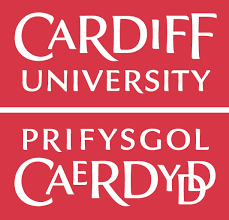Cardiff University, 17th November
On the 17th November 2016, Cardiff University hosted its first postgraduate conference on Gender and Digital Cultures. Conceived by members of the University’s Gender and Sexualities Research Group and Digital Cultures Network, the conference aimed to provide space for postgraduate researchers to share and debate emerging interdisciplinary scholarship on Gender and Digital Culture as well as build capacity amongst postgraduate students in digital research practice.
It was a full day of paper presentations and workshops: drawing 40 postgraduate and early career researchers from a range of disciplines and institutions. The day opened with explorations of the growing problem of digital misogyny and hate speech. Pip Janssen (Cardiff University) examined the way language and memes are deployed by the anti-feminist and Neo-Nazi ‘Alt Right’ to draw support, whilst Bethany Lamont (University of Arts London) critiqued misunderstandings and misappropriations of the survivor figure online and generated a dialogue on the limits and potentials of depicting and narrating trauma in digital spaces. Discussions of sexism online continued in the afternoon with ReBecca Compton’s (Cardiff University) exploration of sexism in the gaming industry and Estabiliz Linares’ (University of Duesto, Spain) work on sexist cyber-harassment amongst 15 – 16 year olds in the Basque Country.

A productive counterpoint to these discussions was provided by Karen Desborough’s (University of Bristol) and Elizabeth Cook’s (University of Sussex) session on mediated feminist activism. Not only did these talks offer inspiring insights into digitally-enabled forms of feminist resistance, but they provided a valuable global perspective on this activism. Karen’s presentation drew on semi-structured interviews with anti-harassment activists operating in Brazil, Chile, Egypt, Germany, India, Lebanon, Mexico, Peru and the UK and Elizabeth’s ethnographic research explored online feminist spaces in the global North and global South, including Hollaback! ; Feministing and Girls at Dhabas.
Addressing digital cultures across international contexts continued with two sessions exploring contemporary gender and sexuality politics in Chinese culture. Talks in these sessions included Biye Gao (University of London) on the use of reproductive apps amongst pregnant women in rural China; Linxin Wang’s (Cardiff University) analysis of female images on the social media platform WeChat; Tianyang Zhou (University of Sussex) on the intersection of feminist, LGBT and queer politics in protective discourses surrounding heterosexual women married to gay men (tongqi); and Shuaishuai Wang (University of Amsterdam) on the representation of gay life in Chinese web dramas. These talks raised important questions about the future of women’s and LGBT rights in China.

Moving back to a local context Scott Kerpen (Cardiff University) presented findings from his work on how young male sexualities from post-industrial South Wales come to be performed online, whilst Ian Thomas (Cardiff University) provided theoretically informed insights into the materiality of men who have sex with men’s digital sexual practices on Tumblr. A further highlight of the day was being drawn into the world of Seren Sanclêr: a fictional artist performed through transmedia texts by Cardiff-based artist Sara Sylvester for her practice-based PhD exploring the relationship between identity, narrative, new media and public reception.
In addition to empirically and theoretically informed presentations, Dan Gray (Cardiff University) and I delivered a collaborative workshop on analysing social media data. Utilising data from Dan’s study on misogynistic hate speech online and my own work on LGBT+ young people’s social media practices, we invited participants to discuss and explore a range of analytic approaches and their wider implications. In particular the workshop brought critical discourse analysis perspectives into dialogue with efforts in visual research to explore the look, feel and movement of the digital.
To round off debates and discussions from the day, the conference committee facilitated an interactive workshop: inviting delegates to circulate, write and draw on tablecloths in response to key conference themes and research connections. Questions addressed included:
- What do we know so far and what do we still need to learn about the ‘call and response’ culture of feminism and misogyny online?
- What methodological assumptions do we need to test or challenge in thinking about gender and digital cultures?
- How can we study global digital cultures and what are the implications for anti-racist and anti-colonial research?

Building upon the connections developed through this conference we will continue debating these questions and hope to realise future collaborations around emerging scholarship on gender, sexuality and digital culture. We felt privileged to host such an exciting range of speakers and delegates who made the conference a wonderfully engaging day. To see a Storify of all the tweets from the conference click here or join in the conversation online by tweeting #digigenders, @CUdigitalnet or myself.
Special thanks goes to Cardiff University’s Doctoral Academy for funding the conference.
– Kate Marston
MarstonKE@cardiff.ac.uk
